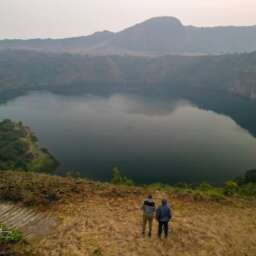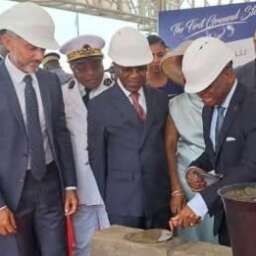(Business in Cameroon) – Cameroonian Prime Minister Joseph Dion Ngute, yesterday, inaugurated the Babadjou-Matazem-Welcome to Bamenda road, a 35-kilometer section that marks the completion of a major infrastructure project. The inauguration also launched work on the final 12-kilometer urban crossing of Bamenda.
The two projects represent the last link of the 52-kilometer Babadjou-Bamenda road, financed by the World Bank at a cost of more than 145 billion CFA francs.
Completed in 2024, the inaugurated section was built to international standards and includes modern urban crossings, drainage systems, and dual-carriageway stretches. The work began in 2017 as part of the Reconstruction Plan for the Northwest and Southwest regions, which have been in crisis since 2017.
The new road is expected to improve conditions for travelers and help stabilize the Northwest region, which continues to be affected by the Anglophone conflict. Beyond its security benefits, the project is a key economic catalyst.
The Babadjou-Bamenda road is part of the strategic 438-kilometer Yaoundé-Bamenda-Enugu corridor, which connects Cameroon’s capital to Nigeria, Africa’s largest economy and most populous country. According to the National Institute of Statistics, formal trade between the two nations reached nearly 79 billion CFA francs in 2023, with Cameroon recording a slight trade surplus of 0.1 billion CFA francs. However, the report notes that informal transactions and smuggling along the porous 1,500-kilometer border account for a significant portion of the real trade volume.
In 2024, both countries intensified economic cooperation, opening a border market in February and holding a bilateral trade fair in April. Cameroon’s exports are primarily food products, while Nigeria supplies Cameroon with manufactured goods, ranging from spare parts to electronics.
By strengthening this road corridor, Cameroon aims to streamline trade with its neighbor, secure a greater share of its economic transactions, and combat illicit trade and persistent security tensions.
Frédéric Nonos

































